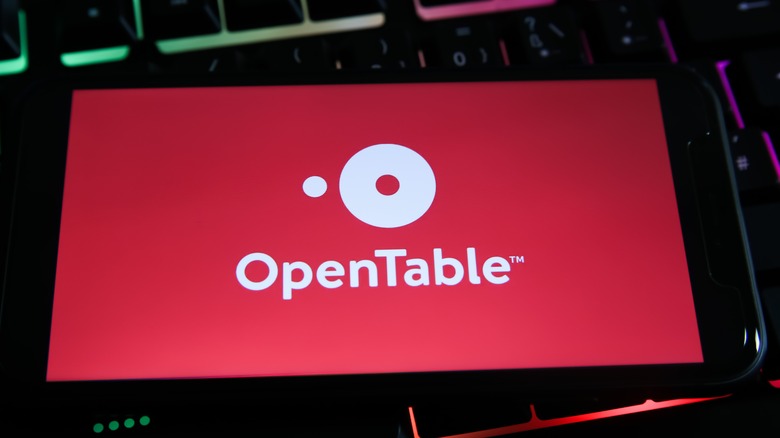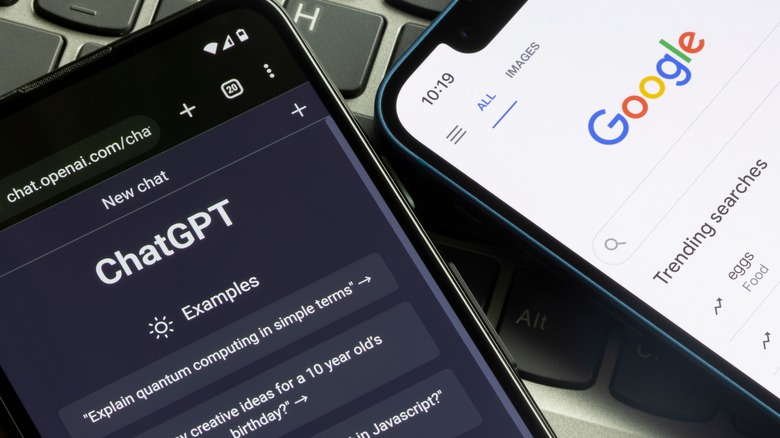OpenTable Plans On Having ChatGPT Make Restaurant Recommendations
You've undoubtedly heard at least some part of the ongoing, international conversation concerning the ascendancy of AI in its many iterations. Artists are understandably concerned with bots like Dall-E, which can mimic styles that visual artists have spent their careers originating and honing. Educators and students are figuring out how to navigate a world where chatbots can generate term papers and answer test questions. Of course, for all of the negative and cautionary press AI is receiving, there are positive, curious, and hilarious stories about its abilities and missteps. Sandwich superstar Barry Enderwick, who runs the popular Sandwiches of History Instagram and TikTok accounts, has even used ChatGPT to write never-before-seen sandwich recipes, such as this unusual combo of salmon, honey, and Irish whiskey.
Beyond scientific explorations and entertaining usages, companies are turning to AI in hopes of improving customer experience without having to increase employee workloads or add staff. Recently, online reservation company OpenTable announced it has partnered with ChatGPT to help recommend restaurants. Per Restaurant Business, subscribers who fork over $20 a month for increased functionality will be able to ask ChatGPT questions, such as, "What's the best-reviewed Vietnamese restaurant in Houston?" After scouring the internet, the bot will generate a response that includes a handy reservation link in case a diner is sold on the spot.
Where to eat?
As reported by Restaurant Business, ChatGPT will likely make the feature available to a larger swath of users in the future, and OpenTable may make the chatbot a feature of its own site as well. Prior to the announcement for OpenAI – ChatGPT's parent company – and OpenTable, people were already testing the bot's ability to recommend restaurants in their area. Radio stations in Kentucky and Arizona – K93 and 102.5 KNIX, respectively – put it to the test and had it generate lists of the top eateries in their state. ChatGPT based its responses on a collection of online recommendations by locals as well as reviews and food blog posts. Of course, be it from a human or AI trained on data from humans, any such list is highly-subjective.
AI could have other implications for the restaurant industry beyond mere suggestions. As a calculating, analytical engine that ingests data at astounding rates, it is foreseeable that various forms of artificial intelligence could aid with ordering, menu planning, labor and food cost analysis, and more. For restaurant owners, AI could add a level of consistency that is hard to come by in an industry affected by a plethora of vagaries.

